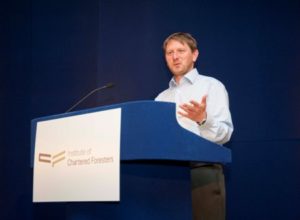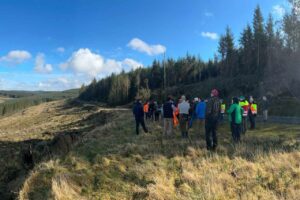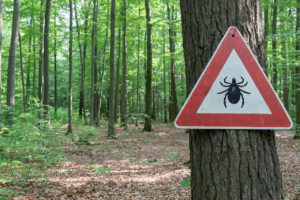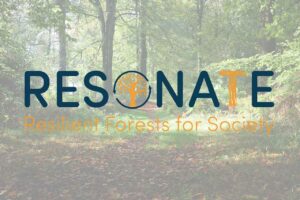The role of urban trees in moderating climatic effects will come under the spotlight in the forthcoming Trees, People and the Built Environment II
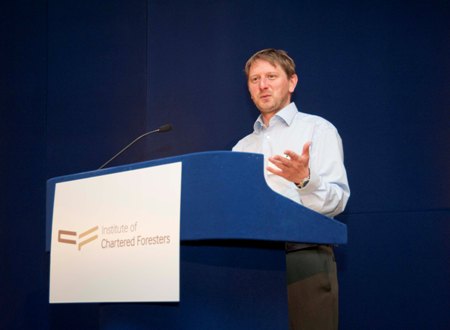
Kenton Rogers MICFor, at the 2013 ICF National Conference
Internationally recognised experts will descend on Birmingham in April, to deliver the latest evidence on the benefits of urban trees and greenspace in our towns and cities. These benefits include reducing climate effects such as surface overheating, flooding and transmission of airborne pollutants.
i-Tree ECO studies examined
The conference will present studies that use the i-Tree ECO model in particular, which examines these effects to provide a cost-benefit analysis for trees.
Kenton Rogers MICFor, Co-Founder of Treeconomics, who were involved in recent i-Tree ECO studies in London and the Green Benefits in Victoria Business Improvement District publication, will join a number of i-Tree experts presenting at TPBE II. Mr Rogers said;
“Trees that make up the urban forest are a key component of green infrastructure, providing a wealth of benefits, and this includes increasing our resilience to climate change impacts. Protecting our communities against extremes in summer temperature from the urban heat island effect is just one example”.
“Looking water management issues, our studies of the Victoria BID found that existing trees, green spaces and other green infrastructure assets in Victoria divert up to 112,400 cubic meters of storm water runoffs away from the local sewer systems every year. This represents an estimated £20,638 to £29,006 in carbon and energy savings year on year.”
Other big names due to discuss i-Tree results and methodology at TPBE II include Dr Gary Watson, from The Morton Arboretum, USA, presenting studies from Chicago in ‘An i-Tree Eco Analysis of the Chicago Regional Urban Forest: Implications for the future’.
Reducing London’s UHI effect
Delegates at this unique urban trees research conference will also hear about work happening more locally in relation to urban greening research. Dr Kieron Doick, Forest Research, UK, will present ‘Keeping London a cool place to be: the role of greenspace’.
Dr Doick’s presentation will look at the role of greenspace in London in reducing the Urban Heat Island (UHI) effect, and the future comfort and health of urban dwellers. He described the study, saying:
“The term UHI describes a phenomenon where cities are on average warmer than the surrounding rural area. Combined within the impacts of a changing climate, assessment and mitigation of UHIs in the UK is important to the future health and comfort of urban dwellers.
“The paper I will present at TPBE II describes a five-month study to measure the spatial and temporal variability in air temperature across one of central London’s large greenspaces (Kensington Gardens) and in two surrounding streets. Results demonstrate that Kensington Gardens reduced UHI intensity by up to 4 ̊C in the immediate vicinity of the greenspace. As the study also observed a decrease in the cooling effect with increased distance from the greenspace, it is suggested that a network of greenspaces is required across urban areas to deliver city-wide mitigation of an UHI. Such a network would also offer the many other benefits of greenspaces – highlighted throughout the conference – to the people who live and work in the city.”
Join TPBE II
TPBE II is a partnership initiative of 20 natural and built environment organisations. It is hosted by the Institute of Chartered Foresters as its 2014 National Conference.

